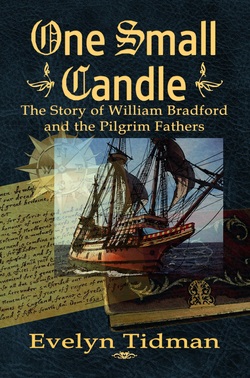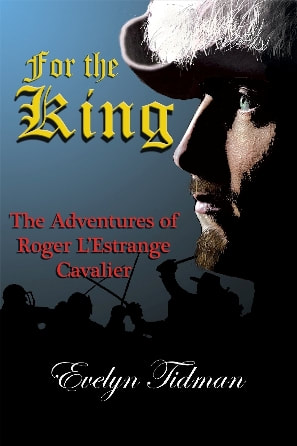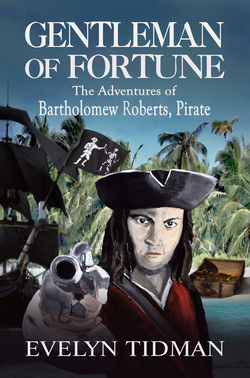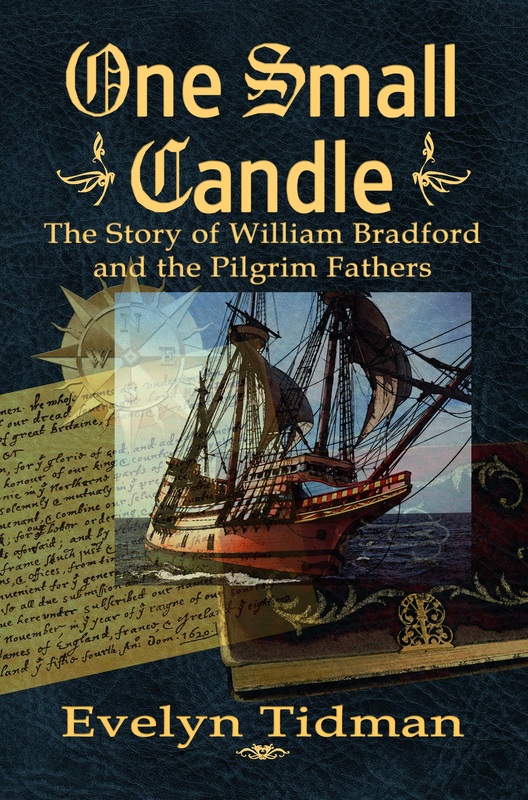Sir Edwin Sandys was no stranger to the palace of Whitehall, and in particular the offices of the King’s Secretary Sir Robert Naunton. The opulence that surrounded him impressed him not a bit, and nor was he intimidated by Sir Robert, who looked up as the servant announced Sir Edwin, and beckoned him in.
Sir Edwin bowed as they walked towards each other, and Sir Robert offered his hand.
‘You are well come, Sir Edwin.’
‘I trust you are well, Sir Robert?’ Sir Edwin said, taking his hand. He and Sir Robert were old acquaintances, bordering on friendship.
‘Fairish, sir, fairish. To what do we owe the pleasure of this visit?’
Sir Robert was a fine intelligent man, a Puritan sympathiser and a staunch Protestant. His eyes searched Sir Edwin’s for clues.
‘I come on Company business,’ Sir Edwin said. ‘A group of people have asked the Company for a patent for land in Virginia.’
Sir Robert was well aware of the need to settle land in the Americas, before the Dutch, the French or the Spanish got their hands on it. ‘Come now my dear sir. Sit down. You will take a little wine? Miles—some sack for Sir Edwin.’
The servant who had opened the door to Sir Edwin bowed and went away. Sir Edwin moved towards the blazing fire and sat down on one of the fine upholstered damask chairs.
‘So, Sir Edwin, you wish me to petition the King?’
‘How goes it with His Majesty?’
‘Considers you his greatest enemy!’
‘Does he, indeed?’ Sir Edwin retorted much impressed. ‘Well, and I hope he is not right on that! I must be one of His Majesty’s most loyal—’
Sir Robert laughed. ‘Yes, I know. So who is this group that want to go to Virginia?’
‘They call themselves Pilgrims.’
‘I’ve heard of them. Separatists from Leyden. John Robinson’s group.’
‘You know of them?’
‘Who does not?’
‘They are prepared to face the wilderness and strengthen the King’s dominion in America. They are stalwart and hardworking, men of faith. I have a letter here from Master Robinson and William Brewster, their elders, setting out seven articles which they hope will persuade the King. And I think it may well serve.’
He produced the paper from inside his doublet and gave it to Sir Robert, who perused it carefully while Sir Edwin received the wine from the servant and took a sip from a silver goblet.
‘It may well do the trick,’ Sir Robert said at length. ‘Leave it with me.’
King James was amenable, and Sir Robert was not unhopeful of success. His Majesty looked at the letter but he did not bother himself with the fine details. There was always so much to read, and his eyes tired easily. ‘So these Puritans want to go to Virginia, do they?’
‘Your Majesty did indeed suggest that we need colonists willing to brave the rigours and the hardships of living in a wilderness in order to bring the Americas under the dominion of your great Majesty.’
‘For England, eh?’
Sir Robert bowed assent.
‘And they want our protection and no doubt freedom of worship, do they?’
‘I believe that is the case, your Majesty.’
The King pursed his lips thoughtfully. ‘By what means will they exist there?’
‘I believe fishing, sire’
The King laughed. ‘God save my soul! ’Tis an honest trade. It was the apostles’ own calling!’
Sir Robert, feeling optimistic, bowed his head again. ‘Indeed, your Majesty.’
‘Well, we see no reason why not.’ He paused. ‘Freedom of worship eh? Just who are these people?’
‘They are known as Separatists, sire.’
‘Did they not quit this glorious realm to live in Holland?’
‘Indeed, your Majesty remembers well.’
‘Well, we think we should see what the Archbishop of Canterbury and the Bishop of London have to say about it. Let them apply to them.’
Sir Robert could do no more than bow obsequiously, and retreat backwards from the King’s presence. But he was not pleased. He knew there was no hope of their lordships the bishops granting anything to the Separatists. They were avowed enemies.
However, he had to obey, and so he applied to the bishops. George Abbot the Archbishop of Canterbury refused point blank. He hated Puritans, and hated particularly the Separatists whom he disparagingly called Brownists. As a group they challenged his authority. Indeed, they did not recognise his authority in spiritual matters at all, so that he wondered why Sir Robert should think it necessary to ask his permission for these people. If it were left to them, he knew, he would be out of office, and reduced to the straightened circumstances of a country parson. As far as he was concerned they were the offspring of the Devil, the Antichrist, and he had no intention of giving them anything at all.
When Sir Edwin heard the news he was not in the least surprised. He had known, just as Sir Robert had known that the bishops were no friends of the Separatists. However, he was not so easily put off. It was a setback, true, but the Virginia Company were desperate for willing, foolhardy, settlers no matter who they might be, and he thought the King was being inordinately intractable in handing the matter over to the bishops. He decided to apply again, but when Cushman and Carver learned of the application, they both said No.
‘We cannot apply to the bishops. You must know, Sir Edwin, that they are our enemies.’
Sir Edwin put his head in his hand, and wrote to John Robinson and William Brewster, sending the letter with Cushman and Carver.

 RSS Feed
RSS Feed



